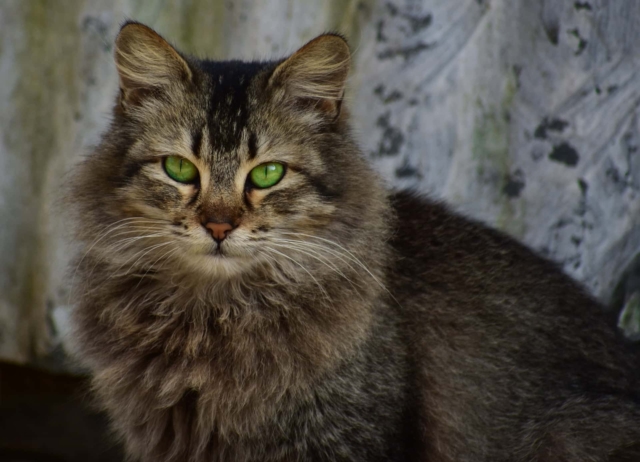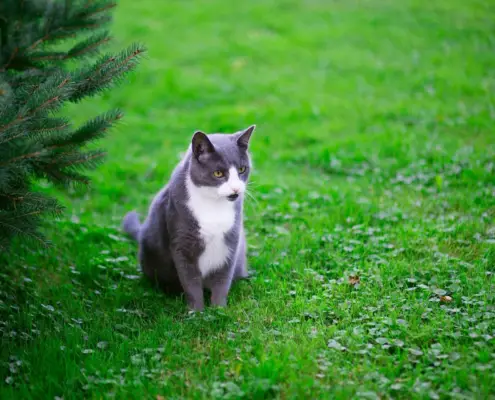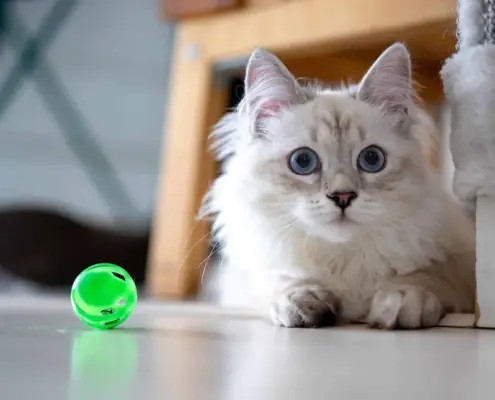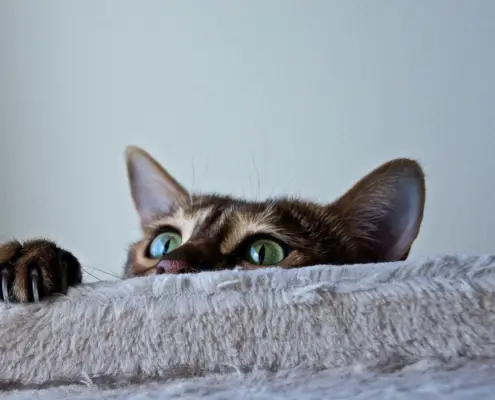
Cats have been one of the most beloved pets for centuries, captivating us with their grace, independence, and mysterious nature. As cat owners, we often find ourselves wondering how long our furry friends will be by our side. In this article, we will delve into the fascinating world of cat lifespan, exploring the factors that affect it, the average lifespan of domestic cats, the longest living cats in history, common health issues that can shorten a cat’s lifespan, how to increase your cat’s lifespan, understanding the aging process in cats, signs that your cat may be nearing the end of its life, coping with the loss of a cat, and ultimately, gaining a deeper appreciation for the precious time we have with our feline companions.
Factors that affect cat lifespan
While each cat is unique, there are several factors that can significantly impact their lifespan. Firstly, genetics play a crucial role. Certain breeds are predisposed to specific health conditions that can shorten their lifespan. For example, the Persian breed is more prone to polycystic kidney disease, which can have a detrimental effect on their longevity. Additionally, a cat’s overall health and lifestyle choices can influence their lifespan. Proper nutrition, regular veterinary care, and a safe and stimulating environment all contribute to a cat’s well-being and longevity. Lastly, external factors such as accidents, exposure to toxins, and infectious diseases can also impact a cat’s lifespan.
Average lifespan of domestic cats
On average, domestic cats live between 13 and 17 years. However, it is essential to note that this is just an average, and many cats live well into their twenties. Factors such as breed, genetics, lifestyle, and overall health can either extend or shorten a cat’s lifespan. For instance, outdoor cats are generally exposed to more risks and have a shorter lifespan compared to indoor cats. Additionally, mixed-breed cats tend to have better genetic diversity, which can contribute to their longevity. While the average lifespan provides a general guideline, it is crucial to remember that individual cats can deviate from this range.
Longest living cats in history
Throughout history, there have been remarkable stories of cats defying the odds and living exceptionally long lives. One such cat was Creme Puff, who holds the Guinness World Record for being the oldest cat ever recorded. Born on August 3, 1967, Creme Puff lived an astounding 38 years and 3 days before peacefully passing away in 2005. Another notable feline is Grandpa Rex Allen, a domestic cat who lived to be 34 years old. These extraordinary cases highlight the potential for cats to live well beyond the average lifespan when provided with optimal care and a nurturing environment.
Common health issues that can shorten a cat’s lifespan
While cats are generally resilient creatures, there are several health issues that can significantly impact their lifespan. One of the most common conditions is chronic kidney disease, which affects a significant number of aging cats. Dental disease, heart disease, and obesity are also prevalent health issues that can shorten a cat’s lifespan if left untreated. Regular veterinary check-ups, preventive care, and early detection of any potential health problems are crucial in ensuring a long and healthy life for our feline companions.
How to increase your cat’s lifespan
As responsible cat owners, there are several steps we can take to increase the lifespan of our beloved feline friends. Providing a balanced and nutritious diet tailored to their specific needs is paramount. Regular exercise and mental stimulation are also vital in keeping our cats physically and mentally active. Additionally, maintaining a safe and stress-free environment, ensuring regular veterinary check-ups, and practicing preventive care measures such as vaccinations and parasite control are all essential in promoting a long and healthy life for our cats.
Understanding the aging process in cats
Just like humans, cats go through an aging process that can manifest in various ways. As cats age, they may experience changes in their physical appearance, such as graying fur and decreased muscle tone. They may also develop age-related health conditions, such as arthritis or kidney disease. It is important for cat owners to be observant and proactive in providing the necessary care and support to their aging feline companions. Regular veterinary check-ups and adjustments to their diet and lifestyle can help manage and alleviate the effects of aging, ensuring a comfortable and fulfilling life for our senior cats.
Signs that your cat may be nearing the end of its life
The thought of our beloved cats nearing the end of their lives is undoubtedly a difficult one to bear. However, it is crucial to recognize the signs that may indicate that our cats are approaching the end of their journey. These signs can include a loss of appetite, weight loss, decreased mobility, lethargy, changes in behavior, and increased vocalization. While these signs may not necessarily signify the imminent end, they should prompt a discussion with a veterinarian to ensure the well-being and comfort of our cats during this delicate stage of life.
Coping with the loss of a cat
The loss of a beloved cat can be an incredibly challenging and emotional experience. It is essential to allow ourselves to grieve and process our feelings of loss. Seeking support from friends, family, or support groups can provide solace during this difficult time. Some individuals may find comfort in creating a memorial for their cat or engaging in activities that honor their memory. It is important to remember that everyone copes with loss differently, and there is no right or wrong way to navigate this journey. Ultimately, cherishing the memories and the time spent with our cats can help us find solace and healing.
Conclusion
In conclusion, understanding the lifespan of cats allows us to appreciate the precious time we have with our feline companions. While genetics, lifestyle choices, and external factors can influence a cat’s lifespan, providing optimal care and a nurturing environment can significantly increase their chances of living a long and healthy life. By being attentive to their health, understanding the aging process, and recognizing the signs that may indicate the end of their journey, we can ensure that our cats receive the love and support they deserve throughout their lives. Cherishing the memories and coping with the loss of a cat is a deeply personal experience, but by honoring their memory, we keep their spirit alive in our hearts.
If you enjoyed my article, I would appreciate you sharing it with your network.

Sima Ndlebe
Sima writes for CatBuzz. He is interested in Cats, Health and Fitness, and Entrepreneurship.
Published: 16 November 2023




